This post was originally published on American Jewish World Service – AJWS.
-
Losing shelter can be one of the most traumatic experiences of a person’s life. There’s no single cause behind this global crisis, but all people pushed into homelessness face the same question: Where do I go now? In India, a coalition of grassroots organizations from across the country, including four AJWS grantees, are answering this …
-

This is a guest blog by Democracy Caledon.
Democracy Caledon is a collective of proactive people deeply committed to restoring good governance in their municipality. Their focus is on advocating for responsible local and regional governance that serves the best interests of all residents.
Caledon is known as the green gem of the Greater Toronto Area. Home to the Niagara Escarpment, the Oak Ridges Moraine, the Greenbelt, prime agricultural land and headwaters for both the Humber and Credit Rivers, it attracts hikers and skiers, cyclists, equestrians, fishing enthusiasts and people who want a rural or small-town experience. It’s also home to 80,000 residents.
Then there is Caledon’s alter ego: a vast expanse of “undeveloped” land on Brampton’s urban fringe. Land worth billions of dollars to developers intent on stripping the topsoil, razing heritage farmhouses and sawing down beautiful old trees to make way for trucking facilities and housing. This development threatens to permanently neuter some of the best farmland in Canada and upend the community’s decades-long, carefully orchestrated approach of modest, carefully-planned growth that complies with Ontario’s need for affordable housing and employment while maintaining Caledon’s social, economic and environmental integrity.

And that, philosophically, is why Democracy Caledon, a residents’ group focused on civic engagement and advocacy for responsible land-use planning and environmental protection, has been driven to call upon the Ontario Superior Court of Justice.
Technically, Democracy Caledon is taking legal action due to the Town government’s June 2024 decision to “pre-zone” 5,000 acres of mostly prime agricultural land for 35,000 housing units (three times what Caledon is required to build to meet Ontario’s housing goal of 1.5 million new homes by 2031) across 12 new urban development areas. Democracy Caledon argues that Caledon Council’s approval of the 12 zoning bylaws does not conform with its own Official Plan nor with Peel Region’s. Lawyers acting for Democracy Caledon state the approval of the bylaws pertaining to this land can be quashed for “illegality” under section 273 of the Municipal Act.

According to Minister of Municipal Affairs and Housing Paul Calandra, the Region of Peel and the Toronto and Region Conservation Authority, the “pre-zoning” approved by Caledon Council is premature. Legal and planning experts advised Democracy Caledon that pre-zoning is an end run around the normal sequence of tried-and-true planning steps. It rezones the land before developers have completed environmental studies or forecasted the availability and costs associated with public infrastructure. Therefore, the Town Council’s action is arguably irresponsible and could be devastating for taxpayers.

Democracy Caledon says Caledon Council’s actions are undemocratic and residents agree. Recent polling commissioned by the group found strong community opposition to the bylaw decision, with six of ten respondents expressing discontent. Eight of ten believe the rezoning approved by the Town Council is irresponsible. The concerns of citizens are no doubt fueled by Town Council’s poor public notice of its proposed plan to rezone, inadequate information provided to residents, unhelpful and occasionally misleading public information sessions and a seeming disregard for residents’ concerns. Residents’ concerns were heightened when Caledon Mayor Annette Groves scheduled the vote for the rezoning for the last week of June 2024 after making a public promise to not hold it during the busy summer months.
Democracy Caledon President Debbe Crandall says this legal action “aims to protect not just farmland and greenspace, but the well-being and wallets of our community, at the same time as supporting the urgent need for affordable housing in Caledon.” On behalf of Democracy Caledon, Crandall emphasizes the “need to protect the democratic process since it was badly eroded by the Town Council’s decision on the 12 zoning bylaws.”
For more information, visit Democracy Caledon.
The post Caledon Residents Stand Up for Democracy by Taking the Town to Court appeared first on Environmental Defence.
This post was originally published on Environmental Defence.
-
Ten-year old Magret lives in coastal Kenya, a rural region currently devastated by drought and famine, where many families have only enough food to eat one meal a day. The nearest reliable water source is an hour’s walk away from Magret’s home. And yet, despite her young age, Magret is making an outsized impact in …
This post was originally published on American Jewish World Service – AJWS.
-
The UK’s public service broadcasters (PSBs) are facing a series of interconnected and existential challenges. As well as declining audiences, disruptive technologies and global market pressures, our public media institutions have become increasingly commercialised, weakened by political interference and isolated from the publics they are supposed to serve.
Yet debates about our PSBs – and the wider ideals, principles and purposes of public media – are often conducted in exclusive, technical spaces dominated by commercial interests, government policymakers and the broadcasters themselves. The public, who should be at the centre of our public media system, are far too frequently left out of these crucial conversations.
READ the MRC’s initial submission to Ofcom’s PSM Review
In September, the media regulator Ofcom published the terms of reference for its latest Public Service Media (PSM) Review. This Review is a five-yearly assessment of how well the UK’s public service broadcasters have been serving audiences, and is part of Ofcom’s statutory requirements as the oversight body for PSM regulation. As well as detailing the delivery of PSM services and content over the last 5 years (covering 2019 to 2023), the Review intends to explore how the UK’s public service broadcasters – the BBC, Channel 4, ITV, Channel 5 and S4C – have been impacted by the ongoing shifts in audience habits, media technologies and market pressures. Ofcom will also consider recommendations to “support the sustainability of public service media” in the future.
This PSM Review comes at a critical moment for the UK’s public media. Following decades of deregulation and ideologically-motivated attacks, organisations like the BBC, Channel 4 and the wider ‘ecology’ of rules and regulations supporting PSM are under serious threat. The public’s own sense of the relevance of PSM, their connectedness to PSBs as national institutions, and their willingness to pay for measures like the TV licence fee, will determine whether this model can be sustained and enhanced in a widely dysfunctional media landscape.
With these challenges in mind, the Media Reform Coalition has produced an initial submission to Ofcom’s PSM Review, focussed on their ‘Phase 1′ assessment of how PSM has been delivered for UK audiences over the last five years. As well as outlining our own evidence and analysis on the state of UK PSBs’ content, investment and benefits to the public, we also outline our serious concerns about how Ofcom looks set to conduct the PSM Review, and offer recommendations on how the regulator can enhance its assessments by providing opportunities for the public to meaningfully contribute to, and lead, these conversations about how PSM is performing – and how it can be transformed for the future.
Our headline findings and recommendations for Ofcom’s Phase 1 examinations are:
PSM institutions – along with the fundamental purposes of public media as a policy intervention – face chronic and existential challenges. Financial insecurity, stemming from a decade of public funding cuts and the collapse of traditional commercial revenues, has accelerated the decline in UK PSBs’ provision of highly-valued and socially beneficial PSM genres. We are especially concerned that, without an immediate and significant change in policy, the public’s sense of the purpose and relevance of PSBs – and in particular citizens’ personal and shared connectedness with PSM as national institutions – will collapse.
PSM delivery has been seriously undermined by deregulation, public funding cuts and market capture in the UK production sector. Adjusted for inflation, total investment in broadcast TV and AV content by the PSB channels has fallen more than 30% from 2010 to 2023, a cut of just under £1.3bn from £4.28bn to £2.99bn. The BBC’s public funding has been cut by 38% in real terms since 2010, leading to extensive cuts in services and increasing monetisation of BBC productions for commercial gain. The 2024 Media Act, passed under the last parliament, is likely to worsen these trends due to its deregulation and narrowing of the legislative definition of Public Service Broadcasting.
The PSM Review needs to be informed by comprehensive qualitative assessment and guided by genuinely participatory public deliberation on the social and cultural impact of PSBs. This kind of interrogation will require sustained and active engagement with the public than is possible with consumer research methods. We urge Ofcom to extend its PSM Review to conduct large Citizens’ Assemblies with the public, just as it did in 2020, to generate novel findings on audiences’ views on the current performance of UK PSM and to enable participants to develop their own recommendations, priorities and ideals for future PSM policy.
Ofcom should use the PSM Review to communicate, authoritatively and unambiguously, the scale and significance of the many challenges threatening the future of UK public service media. Ofcom will need to impress upon government, policymakers and the industry the urgent need for radical reforms to sustain PSM as a vital and highly-valued media policy intervention. Given the rapid speed of market developments and shifting audience habits, further delays and continued disinterest from policymakers will lead to a continued failure to serve the needs and interests of the UK public.
Phase 1 and Phase 2 of the PSM Review will need to recognise and highlight the role of these persistent deregulatory trends in PSB policy as a major contributor to declining provision. Without an immediate and significant change in policy, the public’s sense of the purpose and relevance of PSBs – and in particular citizens’ personal and shared connectedness with PSM as national institutions – will collapse. This will fatally undermine the public consensus for sustaining PSM intervention in media markets, as mechanisms such as the TV licence fee (or any future public funding model for the BBC) and wider public regulations will be seen as less relevant, popular or impactful for audiences.
The post How well is Public Service Media serving the public? The MRC’s initial submission to Ofcom’s PSM Review appeared first on Media Reform Coalition.
This post was originally published on Media Reform Coalition.
-

This year’s annual global climate negotiations, COP29, concluded with an inadequate commitment on climate finance which countered the Paris Agreement’s foundational principles of global climate justice.
When countries signed the Paris Agreement in 2015, they agreed that wealthy countries would provide financing to the most vulnerable countries (often referred to as the Global South) to help advance global climate action and respond to climate disasters. Meeting this promise of climate finance was the priority at this COP.
Over 190 nations gathered to negotiate the new climate finance commitment. The negotiations are challenging – but wealthy countries did not show up with the funds for collective climate action, and therefore did not show up with a fair spirit of delivering what they had committed to under the Paris Agreement. The final decision was steamrolled through despite opposition from the world’s most vulnerable nations.
Experts recognize that over $1.3-trillion must be mobilized every year to transition away from fossil fuels, scale up clean energy, and adapt to climate damages. Only $300-billion was offered as a commitment at COP29, and even this was rife with loopholes. A $300-billion commitment sounds like a lot, at first. But by contrast, countries provide subsidies to oil and gas companies that exceed $1.3-trillion each year, and these companies collect trillions in profits as a result. Those funds could be redirected towards financing climate action globally.
We all know a dollar does not go as far as it used to. When you account for inflation, the new target of $300 billion barely exceeds the previous global commitment that was set in 2009, despite increasing climate damages and the growing urgency of climate action.
In the past years, we experienced climate damages that harmed communities and cost billions of dollars, at home in Canada and around the world. Mitigating climate change by ending pollution from oil and gas is the only way to reduce these damages. Countries like Canada owe a climate debt to vulnerable communities based on our historically high emissions; yet even independent of this, providing financing for climate action to the Global South is important. Climate action is a team sport. We can only win if everyone brings all they have onto the rink to help any teammate score a goal.
The outcome of COP29 advanced the conversation on global climate finance and provided a foundation to build on. The commitment itself fell short, but increases and improvements in the years ahead are possible. For next year’s negotiations to be more successful, wealthy high emitting countries need to play our role on the global team.
Moving to COP30, countries like Canada must deliver finance that actually meets what is needed. We also need to strengthen our own climate action at home. For example, the next round of national climate plans under the Paris Agreement are due in February. Canada’s current emissions reduction plan is currently not on track to keep our homes and communities safe from climate disaster. We will need to deliver a stronger plan, both to reduce emissions at home and scale up climate finance globally, to align with our fair share.
The post COP29 concludes with an insufficient climate finance deal appeared first on Environmental Defence.
This post was originally published on Environmental Defence.
-
Matt and Sam talk to Luke Mayville of Reclaim Idaho about progressive organizing in rural and red America.
This post was originally published on Dissent Magazine.
-
On 26th November the Media Reform Coalition hosted a public panel discussion at the London School of Economics, asking “Is Big Tech too big to regulate?”
Global tech giants like Amazon, Google, Microsoft and Meta dominate the digital media landscape. Their massive concentrations of control and ownership over digital communication, e-commerce, social media and new technologies like AI are restricting the potential of the internet to support freedom of expression, inclusive public debate and individual empowerment.
As we have argued in our 2024 Media Manifesto, we need public alternatives to the dominant platforms and technologies that define our shared digital spaces. But are these corporate titans simply too big, too global and too dominant to regulate in the public interest? How have different countries tried to curb the power of Big Tech, and what could alternative models look like? Chaired by Professor Lee Edwards of the LSE and Media Reform Coalition, our panel of media practitioners, legal experts and tech policy researchers discussed these challenges and more.
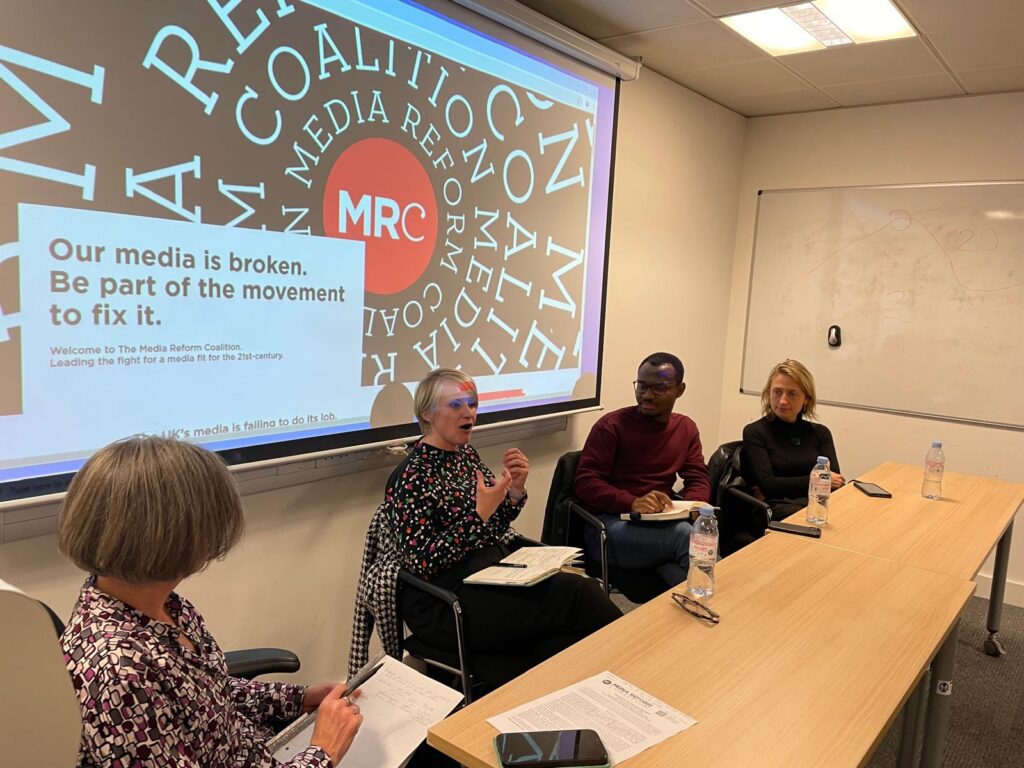
“What these platforms call ‘innovation’, I would say is actually them standardising illegal practices”
Lexie Kirkconnell-Kawana, CEO of the independent press self-regulator Impress, opened the panel by describing how Big Tech giants have shaped the digital services market. “In a world of scarcity,” Lexie noted, “human attention is one of the last few assets from which a company can extract and accumulate wealth in the digital markets.” This has driven what she terms the ‘appliance-isation’ of all aspects of private and public life, with work, commerce, entertainment and public services increasingly defined by digital apps owned and controlled by a handful of dominant tech companies. This immense market power has allowed these companies to establish digital enclosures, which permanently tie users into a homogenous information environment. Lexie linked this to the ‘enshittification’ of digital services, a term coined by Cory Doctorow to describe the pattern of tech companies “amassing a user base, asset stripping the product of value, asset stripping their customer base, and then creating very high barriers to exit those services.”
Lexie went on to explain how tech companies have so far been able to distract regulatory attention by obfuscating their functions under the notion of innovation, and in turn standardising illegal practices that erode regulatory compliance across the sector. Leading tech players have built their market dominance on this model. Lexie highlighted price-fixing and workers’ rights violations by ride-sharing app Uber, as well as the breaching and manipulation of users’ data and privacy rights by digital marketplace Temu, which keeps users active through addictive “gamification and glamourfication” of the shopping experience to support its underlying business model of breaching and manipulating users’ data and privacy rights. The combination of these companies dominating horizontal supply chains and exploiting anticompetitive tools across global markets has created unprecedented market concentrations, which Yanis Varoufakis has critiqued as a shift from traditional capitalist market capture towards ‘technofeudalism’.
The monopolisation of tech platforms has not only created unavoidable risks for users – such as a Microsoft bug causing a global IT outage – but also entrenched predatory market behaviours, like Meta’s buyout (and later sale) of the CRM tool Kustomer. “These companies aren’t practicing innovation,” Lexie argued, “they are practicing ‘ex-novation’. They’re buying up their competitors, and if those companies don’t have any brand recognition or utility they stomp them out of existence, because the big companies aren’t interested in creating better products or services.”
Looking at the evolving regulatory environment, Lexie noted efforts to create mechanisms for curbing the market power of tech companies, such as the UK’s Digital Markets, Competition and Consumers Act and the EU’s Digital Services Act. However, Lexie also cautioned that regulatory enforcement faces serious challenges. “Even in a perfect regulatory sandbox with full implementation and enforcement, my concern is we wouldn’t see effective change because these business models are built on illegal practices, and without those these businesses won’t be able to function.” Lexie raised the ancestry and genomics company 23AndMe as an example: despite its huge historical and anthropological value to customers, the company’s business rests on exploiting users’ data to sell to the highest bidder – a model which, following a major security breach last year, has left the company on the verge of collapse.
“We know tech platforms are flawed, but we prefer them to government control”
Dr Vincent Obia, Leverhulme Early Career Fellow at the University of Sheffield, continued this topic by explaining how African countries’ efforts to regulate Big Tech face more challenging barriers than in the Global North. How tech companies operate in these countries has broadly mirrored the regulatory models that have emerged across what Anu Bradford has termed the three ‘Digital Empires’. The United States, with its focus on free expression and free markets, has fostered the rapid growth of the “tech behemoths”, and protected them from intervention through measures like the Communications Decency Act’s Section 230. In China, Big Tech has not proved ‘too big to regulate’, with the state employing a sliding scale of lax and rigid enforcements to fine, moderate and in some cases control tech companies. Under the European model, which Vincent described as based on citizens’ rights and democracy, a focus on due process and legal accountability faces the intrinsic challenge of trying to regulate companies that are based outside of the EU’s legal domain.
Vincent emphasised that the market power of tech companies dwarves some African nations’ own domestic markets, and African governments have become increasingly reliant on Big Tech to provide key national services – giving these companies considerable influence over debates on regulation. There is also a disparity in the technical capacity and tools available to some countries, which makes it harder for policymakers to understand and consider how platforms operate and what regulatory options might be available. Drawing on his PhD research into social media and tech regulation in Africa, Vincent highlighted five streams of regulatory intervention used across Africa: legal restrictions on online behaviour (such as Egypt’s ‘falsehood’ laws); requirements for official user registration (as in Tanzania); taxes on social media and tech companies (like Uganda); social media bans or internet shutdowns (Congo); and state-sponsored distortion techniques, where states “flood social media spaces and information ecosystems with all kinds of content to distort users’ perceptions of reality”.
Together these approaches represent what Vincent defines as ‘regulatory annexation’. Countries like Nigeria – facing huge disadvantages in their balance of power with tech platforms, and dependent on structural interventions established in Western regulatory settings – focus their regulatory efforts on users’ behaviours, reflecting models of state intervention in ‘traditional’ media like broadcasting and the press. Vincent noted that this approach to regulating Big Tech is part of a broader policy of ‘regime security’, with states protecting their own political or economic controls rather than to protecting or enhancing citizens’ rights and interests. This has afforded counties like Nigeria a bargaining chip with large tech platforms which, not wishing to lose access to large profitable user markets, are more likely to negotiate with states to avoid platform bans or more punitive interventions. However the power imbalance still exists, as shown by Nigeria lifting its nine-month ban of Twitter in 2022 on an assurance that Twitter would establish a corporate office in the country – which Vincent noted has still not happened.
Vincent’s research also found that key actors in Nigeria’s debates on social media regulation preferred the limitations and business models of tech companies to the imposition of controls and bans by governments. “There was a strong feeling in those I spoke to of massive state-citizen distrust, of ‘we do not trust the government. We know platforms’ invasive data practices, we know their exploitative business practices, but we prefer these to government controls.” Although Nigeria has recently developed a code of practice to regulate the tech companies themselves – including measures to hold platforms accountable for hate speech, user privacy and other ‘tech harms’ – this has not been implemented, and Vincent does not envisage it ever being implemented “due to these issues around asymmetries of power”. In looking for opportunities to regulate Big Tech for the public good, Vincent argued for a more principles-led approach to regulatory intervention, in particular by challenging the ‘illusion of inclusion’ present in most tech platforms’ features and instead requiring genuine ‘powers of participation’ for users to control and enhance their own rights in digital spaces.
“What will regulation do for the millions of people who are not online?”
Our final panel speaker, Katie Heard, expanded on these debates by describing the barriers facing the 8 million people in the UK who are currently excluded from digital spaces and tech platforms. Drawing on her work as Head of Research at the Good Things Foundation, the UK’s digital inclusion charity, Katie pointed to poverty, access and skills as key factors that drive digital exclusion and which should play a key part in debates on the purposes and priorities around regulating Big Tech. Her research has identified that there are approximately 8.5 million people in the UK without the necessary skills to get online, and as many as 2.4 million households that can’t afford a mobile phone contract or internet connection.
“People who are already excluded from society in multiple ways are also excluded digitally. There are many people who can’t afford to access the internet, might not have a mobile device they can rely on, but also don’t have the skills to switch on a device, to connect to WiFi, or knowing how to use the basic applications many of us take for granted – many of them controlled by Big Tech.”
There is a need for “a much softer and more supportive environment” to overcome the fear, uncertainty and misunderstanding that many digitally excluded people experience in their relationship with Big Tech. Katie pointed to the prevalence of newspaper headlines about online scams and data misuse, which feed into people’s worries about how providing information to opaque digital platforms may impact their receipt of benefits or their healthcare. The personal experience of walking into a doctor’s surgery, and seeing clearly the systems and the people who are dealing with their personal data, is a world apart from the experience and perception of online services. “The smallest change to a relatively straightforward and trusted service like the NHS app, even just buttons moving around on a screen, can be a huge knock to somebody’s confidence in a system, especially if those are their first steps into the online world.”
Moving from digital exclusion to inclusion often starts in community-led, one-to-one support for individuals, but Katie noted that taking the next step of building people’s digital skills and literacy is a much bigger challenge. The process of informing people about how Big Tech systems work and how to keep themselves safe also has to contend with building users’ basic skills about how to connect online, install apps and use services in an environment that is ever-changing and ever-evolving. “Someone might start with signing up to the NHS app, then installing a banking app, and these are mostly safe, but then they start to shop or use social media, and that tiny bit of knowledge about keeping themselves safe is exposed to a risky and unregulated space.” Katie also highlighted new research by the Good Things Foundation finding that, despite the potential for AI to help bridge the digital divide with simple tools, there is a high level of fear, anxiety and a feeling of a lack of relevance to the lives of digitally-excluded people.
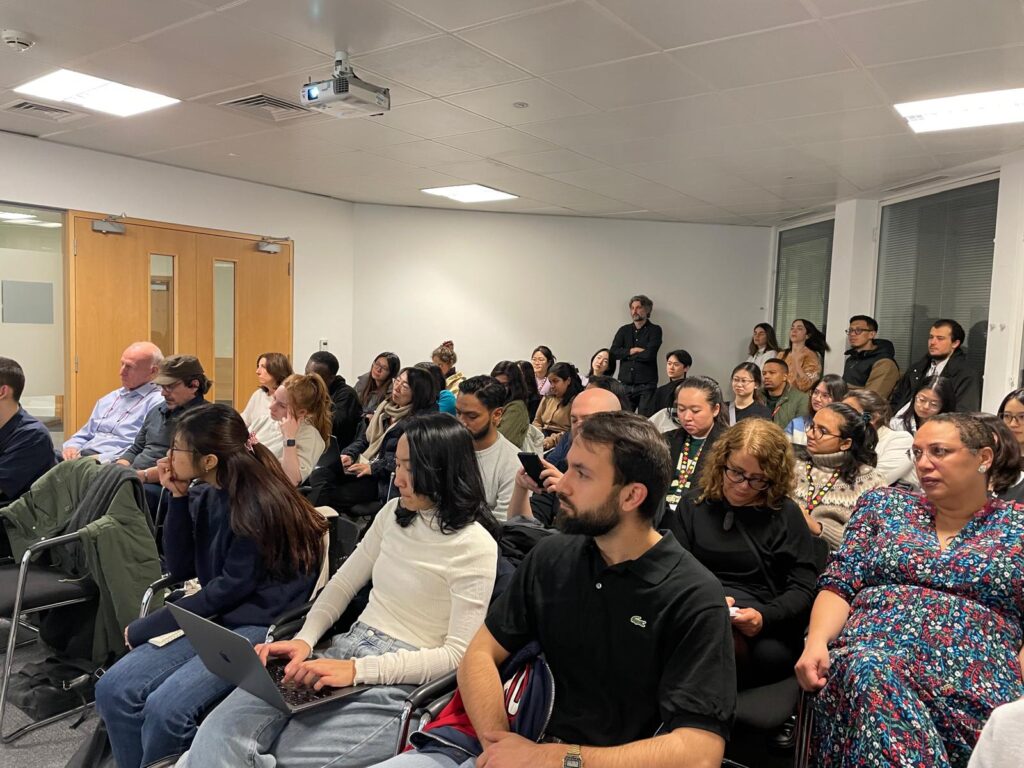
Turning to regulation, Katie noted that the framing of these debates is often focused on tackling challenges or threats from the platforms themselves, rather than looking at what regulation will achieve for the end user. In the UK, both the regulatory approaches and the social relationship with Big Tech are a long way behind how these platforms and digital environments have developed. Orienting policy responses towards the issue of inclusion, by “encouraging these organisations to make sure they’re bringing everybody along with them, and giving the most disadvantaged the skills, knowledge and equipment to participate in these new digital spaces equally”, may be a better way to apply regulation and give Big Tech more active responsibilities to the public. However, Katie cautioned that who stand to benefit the most are also highly unlikely to be aware these regulations exist, or that they are making a lot of difference to their day-to-day interactions with digital media.
What is the end-goal of regulating Big Tech?
Big Tech companies and new digital platforms have become so tightly woven into our daily lives across work, entertainment and social interactions, meaning that debates about regulation are heavily connected with questions about our own security and public well-being. Yet the dominance of these platforms, and the widespread reliance of businesses, governments and civic structures on Big Tech, also creates a serious societal risk. Heavy or ineffective regulations that lead to these platforms disappearing would also result in the loss of a wide range of vital services and social connections, with even greater harms to those most affected by economic, cultural and digital exclusion. This makes the inter-connections between, on the one hand, balancing global political and market power and, on the other hand, protecting the rights and freedoms of individual users, even more complicated.
As part of the panel’s closing Q&A session, Lexie summarised this conundrum and the need to put the public interest at the heart of any regulatory debate on Big Tech:
Are we satisfied with just chipping away at the edges, of ensuring these companies comply with existing antitrust laws or data laws? Or do we want regulation to fundamentally reshape Big Tech, as intrinsic services in our day-to-day lives, for the public good? If we’re going to bring those 8 million excluded people into this digital landscape, why are we bringing them into an incredibly toxic and harmful environment? It’s a bit like giving toddlers cigarettes just because the wider public is exposed to the harms of smoking.
On the current direction of travel, it seems certain that Big Tech and the services they operate are set to become more commercialised, and more intent on trapping users within exploitative systems all while holding monopolistic control over more and more of the basic infrastructure that makes up the digital realm. The fundamental question is whether our political and regulatory approaches have the moral consensus, and the technical understanding, to decide if this is what society wants our shared digital spaces to look like.
Read more:
- Benedetta Brevini – “Making Big Tech pay for news will not solve the crisis in journalism”
- The Media Manifesto 2024
- MRC submission to the House of Lords Communication Committee’s ‘Future of News’ inquiry
The post Is Big Tech too big to regulate? Reflections from the MRC’s public event appeared first on Media Reform Coalition.
This post was originally published on Media Reform Coalition.
-
Between May and June, 2024, heavy monsoon rains bombarded the communities on the island nation of Sri Lanka and caused severe flooding and mudslides. The country, already experiencing a severe economic crisis, was pushed to the verge of calamity. The disaster was most dramatic in Southern Sri Lanka, where farming and fishing communities were left …
This post was originally published on American Jewish World Service – AJWS.
-
Matt and Sam are joined by Curt Mills of the American Conservative to assess Trump’s national security team.
This post was originally published on Dissent Magazine.
-
Matt and Sam are joined by Curt Mills of the American Conservative to assess Trump’s national security team.
This post was originally published on Dissent Magazine.
-

Did you know earlier this month (on November 4, 2024), Canada revealed draft rules to limit pollution from oil and gas companies? This plan could be a real game-changer in helping reduce harmful greenhouse gasses (GHG) from the country’s largest polluters.
 But to really work, the plan needs to be stronger—and it needs to be finalized quickly. With a federal election coming up soon, it’s critical that the rules are finalized before the next federal budget is announced, or we might never see a cap on oil and gas pollution.
But to really work, the plan needs to be stronger—and it needs to be finalized quickly. With a federal election coming up soon, it’s critical that the rules are finalized before the next federal budget is announced, or we might never see a cap on oil and gas pollution.As it stands, the draft plan doesn’t go far enough to reduce oil and gas pollution. The target set in the plan is much weaker than what other industries in Canada are being asked to do. It even allows loopholes that let oil and gas companies wiggle out of their responsibility of reducing their pollution through iffy carbon offsets or by paying into a decarbonization fund.
Why does Canada need an oil and gas pollution cap?
Let’s go back to 2021, when Prime Minister Trudeau promised to set limits on oil and gas pollution. This was a much-needed promise, as the oil and gas industry has been fueling climate change for decades, along with damaging impacts of climate change, including increasing wildfires, floods, heatwaves and droughts.
Even today, the oil and gas industry is responsible for nearly a third of Canada’s GHG emissions, and its impact on climate change hasn’t gone down—it’s actually gotten worse.
 But now, we’re hearing excuses from the industry. CEOs and lobbyists are claiming the pollution cap isn’t necessary, or they’re trying to call it a “production cap,” —which is pure misinformation. The reality? The industry has made minimal progress in cutting its pollution and has no real interest in doing so.
But now, we’re hearing excuses from the industry. CEOs and lobbyists are claiming the pollution cap isn’t necessary, or they’re trying to call it a “production cap,” —which is pure misinformation. The reality? The industry has made minimal progress in cutting its pollution and has no real interest in doing so.Even Alberta’s Premier is backing the oil and gas companies instead of standing up for the people of Alberta. This is bad for Albertans and all Canadians! Instead of parroting industry lines, Premier Smith should listen to the people in her province because a majority of Albertans want the oil and gas industry to reduce their pollution.
The oil and gas pollution cap is a bare minimum
Let’s be clear: The pollution cap as it is now is the bare minimum—it’s the least the oil and gas companies should be doing. It is actually based on what the companies have said they can do. It’s completely achievable if these companies were genuinely committed to tackling their pollution, but of course they are not. Instead, they’re raking in billions hand over fist, while the rest of us are left to bear the costs of their climate inaction.
There are easy ways to reduce oil and gas pollution – like stopping methane leaks and electrifying operations.
Putting Canadians first
The stakes couldn’t be higher. Canadians are already feeling the effects of climate change, from extreme weather to rising costs. Canadians are paying more for basic needs, such as health care, groceries and insurance. All because of climate change.
Canada’s draft oil and gas pollution cap is an important step toward tackling one of the biggest sources of greenhouse gas emissions in the country. But for it to truly make a difference, it needs to be strengthened—no more loopholes, no more half-measures. The oil and gas industry has spent decades evading real accountability for its pollution and the impacts of this pollution. Now, with record profits in hand, oil and gas companies are dragging their feet even further.
Millions of Canadians support strong climate policy. Will you join us? We need a stronger pollution cap that holds oil and gas accountable and ensures they do their part to secure a cleaner, safer future for all of us.
Take action for a stronger oil and gas pollution cap.
The post Canada Really Needs an Oil and Gas Pollution Cap Now appeared first on Environmental Defence.
This post was originally published on Environmental Defence.
-
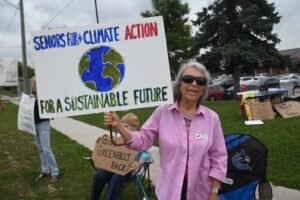
This is a guest blog by Lyba Spring and Nick De Carlo, co-chairs of Seniors for Climate Action Now! (SCAN!), one of the six groups that organized the October 1st Seniors for Climate day of action
Every October 1 is Senior’s Day. But this year, 2024, was different – Canadian seniors in 76 locations mobilized 6000 people to call for a better world, free from the destruction caused by burning fossil fuels. Under the name Seniors for Climate, the project, organized by six seniors climate groups, demonstrated that we care; and declared that we want emergency climate action.
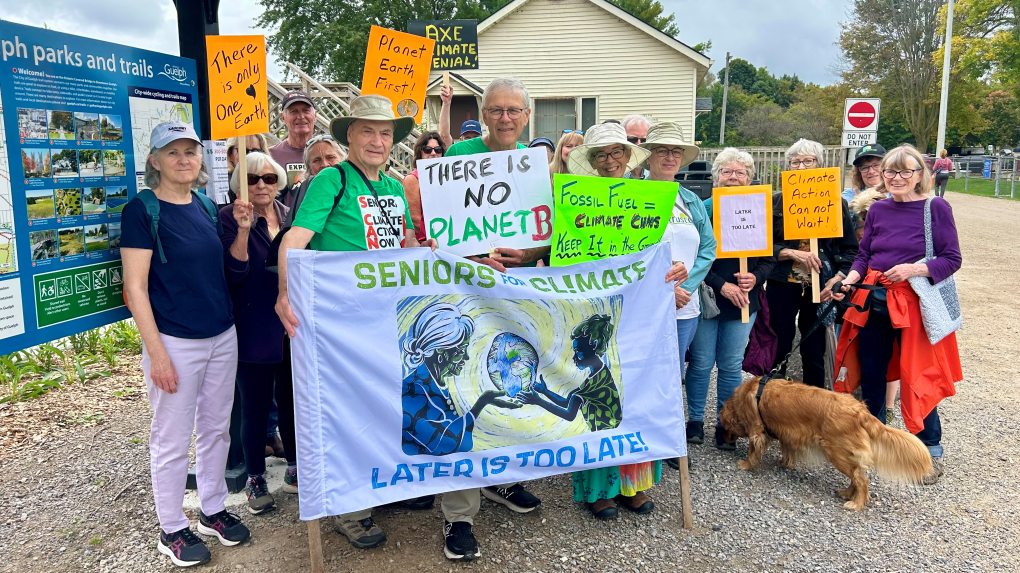
Seniors For Climate Rally in Guelph, Ontario. Photo by Heather Senoran In less than 6 months, we went from a call by 20 people, to the big day on Oct 1 with events across the country! Seniors made efforts to link with youth, seniors, Indigenous people and labour. The organizers of these local coalitions exhibited inventiveness, variety and a high degree of organization. We received videos and photos of people rallying, dancing − and speaking −with tremendous passion. The messages were powerful.
One example is retired union leader Marie Clarke Walker, who made the links at a Toronto rally:
“Ending of fossil fuels must come with a Just transition, one that ensures workers in fossil fuel industries are not left behind as we move towards a renewable energy future…. Across Canada and around the world, Youth and Indigenous communities are leading the charge for climate justice, taking governments to courts, demanding they uphold their responsibility to protect our future.”
October 1, 2024 was just a beginning. Plans are underway for another mobilization next spring. Seniors’ climate organizations are an integral part of the climate justice movement. But we know that victory depends on building the broadest possible unified movement across the country.
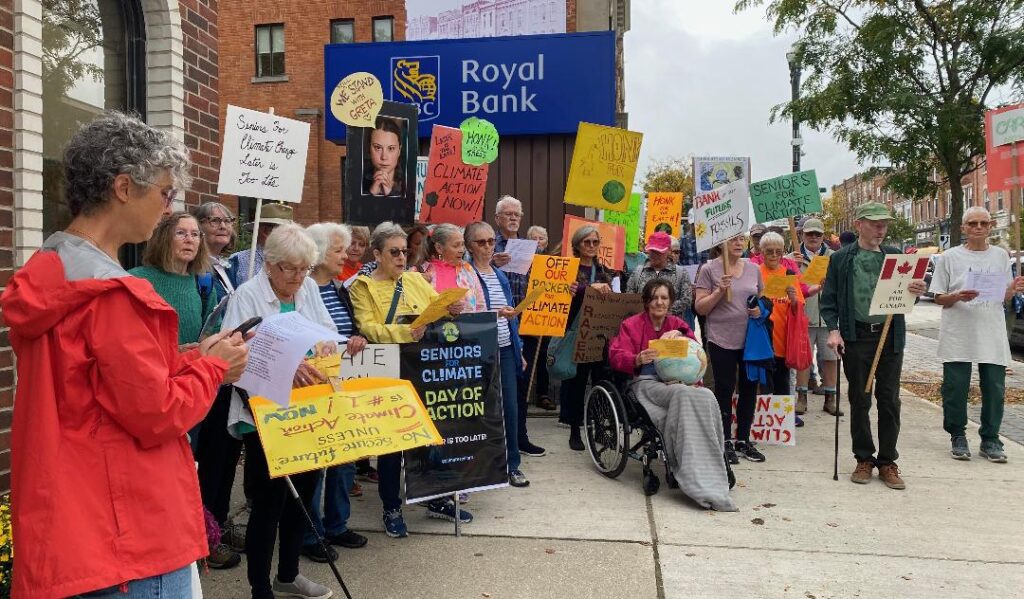
Seniors For Climate event in Orangeville Our group, Seniors for Climate Action Now!, has been reflecting on our contribution.
We have begun a discussion about Seth Klein’s recent article that challenges us all to up our game, to “shift gears”. He encourages us to spend less time on policy discussions and move beyond incremental solutions; and to excite people with big ideas. He also challenges us to identify and organize around a grand project, to step up the fight with the fossil fuel companies and financial institutions, and more specifically, to re-examine our tactics.
We agree.
We also have to:
- integrate our support for, and build stronger alliances with, the Indigenous peoples who are leading the resistance to fossil fuel expansion.
- establish an active link with the broader social justice movement.
- learn how to engage people who are not yet part of climate activism.
This requires a reframing of issues currently exploited by fossil fuel companies and the politicians who protect them: the economic crisis (affordability, housing, health care and education), migration and immigration; and the military build-up and preparation for war.
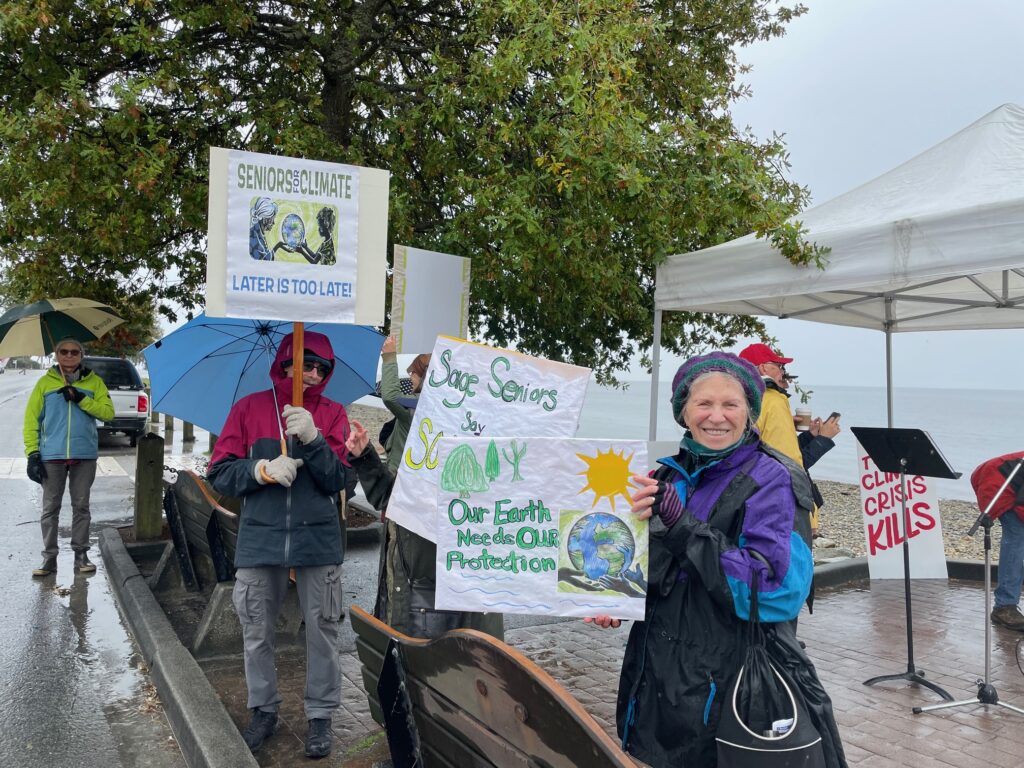
The rain did not stop the Seniors For Climate event in Davis Bay It also requires on-the-ground work in neighbourhoods, schools, places of worship, workplaces, and more.
These are big challenges. Together we can meet them.
Senior climate activists have a role to play. We want to join with others to figure out how” . We want to learn from each other, clarify our strategy and move forward toward a more effective movement. This is especially important following the recent US election.
Because Later is too Late!
 Lyba Spring worked as a sexual health educator for Toronto Public Health for 30 years after working in France for over seven years. She came late to the environmental movement, but brings to it her earlier work with progressive organizations from the women’s movement in the ‘60s to community organizing today. Lyba has played with a percussion group for the past 25 years, has two grandchildren and is a wicked dancer.
Lyba Spring worked as a sexual health educator for Toronto Public Health for 30 years after working in France for over seven years. She came late to the environmental movement, but brings to it her earlier work with progressive organizations from the women’s movement in the ‘60s to community organizing today. Lyba has played with a percussion group for the past 25 years, has two grandchildren and is a wicked dancer. Nick De Carlo was active in the union movement from 1973 to retirement in 2012. He was the national representative for the environment and workers’ compensation for the CAW(Canadian Auto Workers) in the Health and Safety Department for 17 ½ years (1994 – 2012). Before that was active in CAW Local 1967 at McDonnell Douglas in many positions from shop steward to bargaining committee from 1981 to 1987 and President of the local from 1987 to 1994.
Nick De Carlo was active in the union movement from 1973 to retirement in 2012. He was the national representative for the environment and workers’ compensation for the CAW(Canadian Auto Workers) in the Health and Safety Department for 17 ½ years (1994 – 2012). Before that was active in CAW Local 1967 at McDonnell Douglas in many positions from shop steward to bargaining committee from 1981 to 1987 and President of the local from 1987 to 1994.The post Seniors are mobilizing – we want to be part of the bigger climate action movement appeared first on Environmental Defence.
This post was originally published on Environmental Defence.
-

The Pathways Alliance spent millions of dollars misleading the public with ads about “greening” its fossil fuel production. Pathways Alliance is a consortium of six of the biggest tar sands producers in Canada: Suncor, Cenovus, MEG Energy, Imperial Oil, Canadian Natural Resources Ltd. and ConocoPhillips. It’s the same old polluting Big Oil, just rebranded.
We called them out to the Competition Bureau, the agency responsible for regulating false advertising, and the Bureau is now investigating Pathways Alliance for misleading claims. That’s not all; when the federal government passed new anti-greenwashing rules in June, the Pathways Alliance and other fossil fuel companies removed their advertising and website content about climate action.
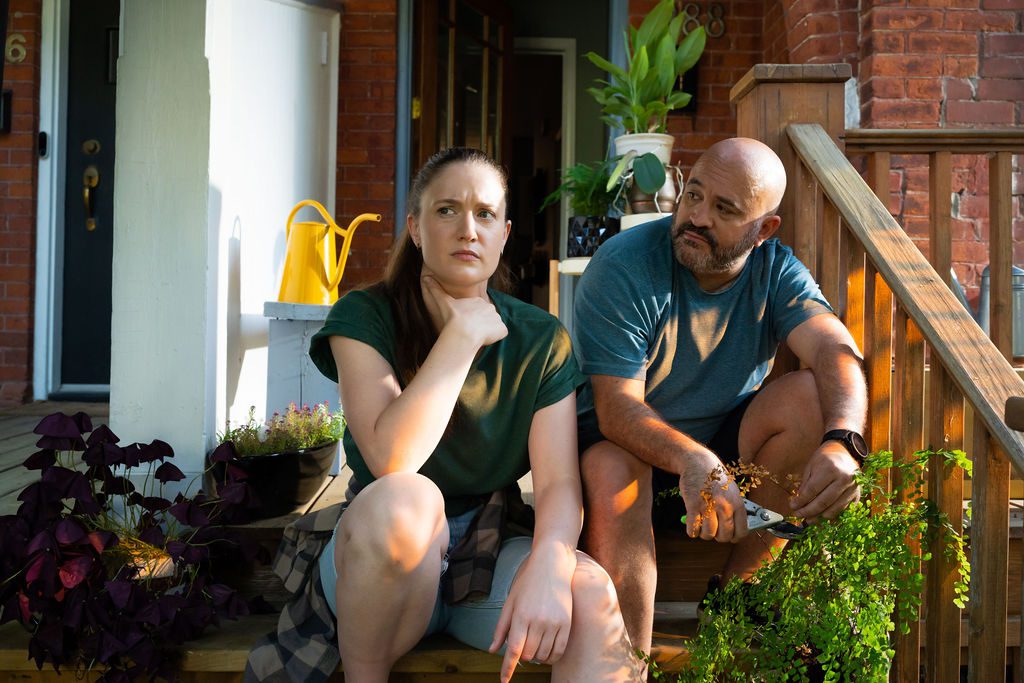
Pathways Alliance can’t run its misleading ads right now because of these anti-greenwashing rules, which is a major win! However, Pathways paid to spread its message to millions of people with huge ads on public transit, playing in airplanes, in news media, on YouTube, and even at major sporting events like the Super Bowl and the FIFA World Cup. We still need to set the record straight.
We don’t have the kind of budgets that the big polluters do, but we do have connections with people who care about the truth! Will you help us counter Pathways Alliance’s misinformation by sharing this video?
Watch the Video here https://www.youtube.com/watch?v=s1yWLIkDqCw
Our video spoofs one of the Pathways Alliance ads, which tried to convince the public that Big Oil was “concerned” about climate change and working on solutions. Here’s the catch: there are three big flaws with the story they’re peddling:
- Fossil fuels are still the largest source of greenhouse gas emissions. In Canada, oil and gas production accounts for nearly a third of the country’s total climate pollution. When you add in the emissions from burning fossil fuels in Canada, they account for over 70 per cent of Canada’s emissions.
- The climate action they’re promoting, carbon capture and storage (CCS), is a false solution. It’s a risky and ineffective technology with a track record of failure. CCS cannot reduce our emissions at the scale required to tackle climate change. It’s also hugely expensive compared to cheaper clean energy solutions: reliable renewable sources like wind, solar and hydropower, coupled with energy storage like batteries.
- The reason they’re greenwashing and pushing CCS is because these corporations want to keep raking in billions of dollars from fossil fuels. They’re trying to buy social license and support for the oil and gas industry in Canada so that the public and government won’t push to regulate their climate pollution. Meanwhile, they’re lobbying and advocating against other emissions reduction policies.
Rather than repeat Pathways Alliance’s misleading claims, our video tells the truth and speaks to Canadians’ genuine concerns about the impacts of climate change, affordability, and the need for climate action.
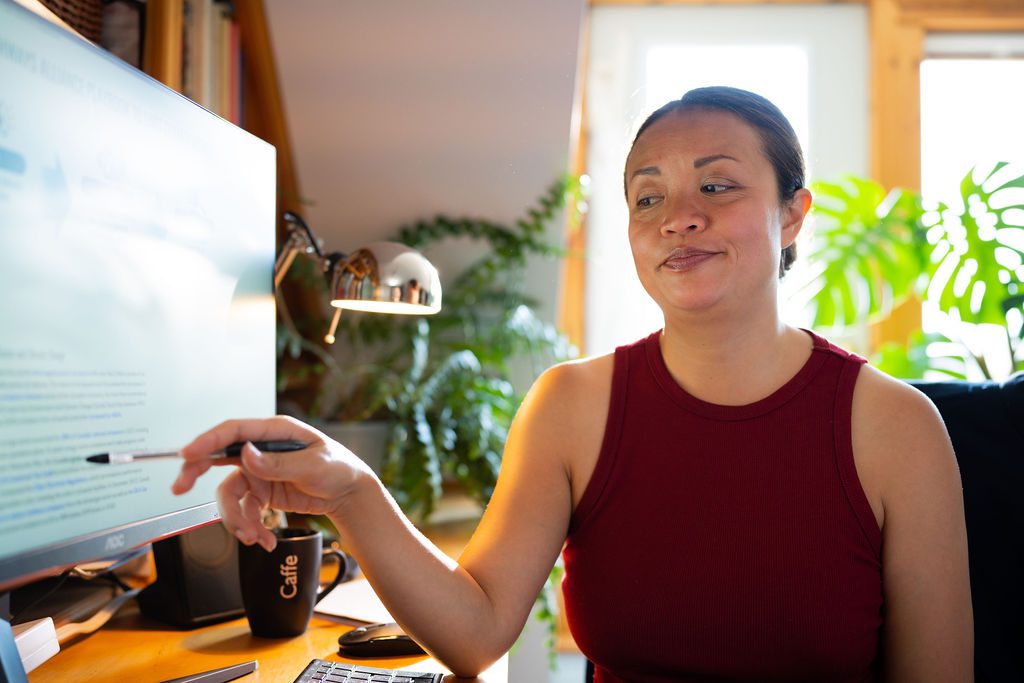
Environmental Defence has been calling on the federal government to limit Big Oil’s pollution for years, and now they’ve finally released regulations that put a cap on fossil fuel industry emissions. Now the federal government is looking for feedback on this policy and we need you all to help us demand stronger regulations.
TAKE ACTION: Tell Canada you support a strong pollution cap without loopholes for Big Oil.

The post Beyond the Spin: Our New Video Counters Pathways Alliance’s Ads with the Truth appeared first on Environmental Defence.
This post was originally published on Environmental Defence.
-

This is a guest blog written by the Humber River Pals, whose mission is to organise regular ravine cleanups to reduce the amount of litter in our ravine system while introducing the beauty and history of the Humber River to the high needs neighbourhood of Weston.
A lot is happening on the banks of the humber!
On a summery day in October, I crossed the bustling intersection of Church and Weston and made my way down three flights of stairs to where Cruickshank Park stretches out along the banks of the Humber River.
I was there to attend a river clean-up organized by Ikinori and the volunteers at Humber River Pals (HPR). This was one of many events the group has organized since 2021, where their first clean-up drew over 40 volunteers and as Ikinori explains, “spoke to the need and the interest of the community to get together to clean-up this beautiful Humber River Trail.”
Along with others, I filled the reusable bags supplied by HRP with broken plastic bits, disposable water bottles, and pieces of styrofoam. I worked plastic lids and other debris out of bushes with one of the long, metal trash pickers.
Leaning over the water near the rushing dam, trying to dislodge a piece of plastic from between pebbles, I teetered on a loose rock.
Later, when I approached the volunteers waiting for Zalika Reid-Benta, the author of “River Mumma” to share her book with us, I found out that the lead character fell in, in that exact place!
For the last three years, HRP received climate action funding which Ikinori explained, has allowed them to pair the clean-ups with “climate education and awareness by bringing on facilitators.” For each clean-up they have a theme. Among other things, they’ve run documentary nights, and addressed climate anxiety, offering yoga to build resiliency.
At Cruikshank Park, Zalika Reid-Benta read from her book which features River Mumma, a Jamaican water deity who is sometimes portrayed combing her hair with a golden comb and then leaving it on a rock to test the integrity of passersby. In this case, River Mumma shows up in the Humber River! She asks Alicia, the protagonist, to get her missing comb back for her.
In answer to a question, Reid-Benta discussed the importance of reciprocity as a theme in River Mumma.
The Humber gives so much to us. It is beautiful—with the sun catching on ripples, showing the rocks at the bottom of amber pools and glancing, silvery, off the surface. It is life-sustaining—even providing a place for salmon to spawn.
Yet, the river faces many threats–litter, pollution, and now, Highway 413 that would cut through its headwaters, stealing from the river.
HPR’s clean-ups are a way to give something back, caring for the river along with other community members.
As Ikinori told me, “everyone who is interested and available on [an] event day is more than welcome to come, it’s free and open to all…literally just show up at the time and place.”
While registration or rsvp is not necessary, signing-in on arrival is recommended! HPR often has raffles or giveaways, like coupons for local shops. They also often provide refreshments.
On the banks of Cruickshank Park, volunteers enjoyed Three Sisters’ soup, cedar and berry teas as they chatted with one another, asked thoughtful questions and listened to Reid-Benta’s inspiring answers.
To join the next event, watch for announcements on HPR’s instagram account: @humberriverpals
____
The Humber River Pals emerged as a response to the litter problem along the riverside. The founders of this collective did not want to ignore the issue and instead grouped together to host their first clean up on May 29, 2021. The community response was fantastic and since then, each event has had a turn out of upwards 46 volunteers per event. Together we are all taking care of the environment and strengthening community bonds.
The post River Reciprocity: Humber River Pals appeared first on Environmental Defence.
This post was originally published on Environmental Defence.
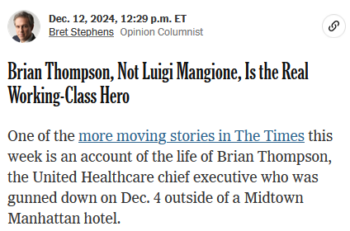



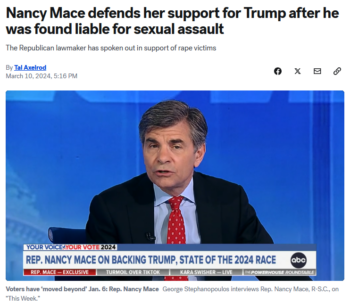











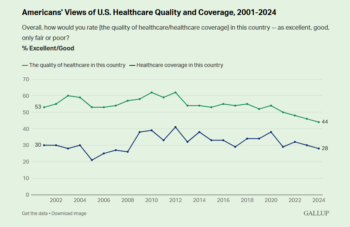



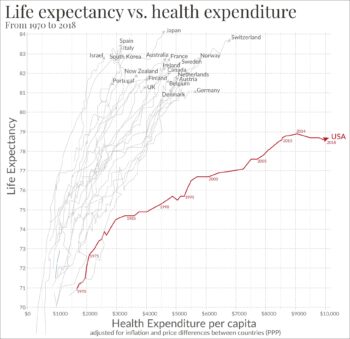

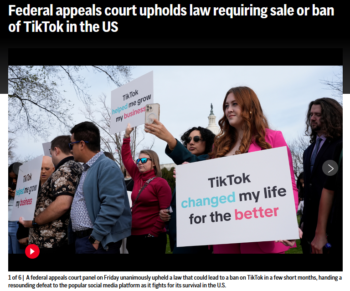


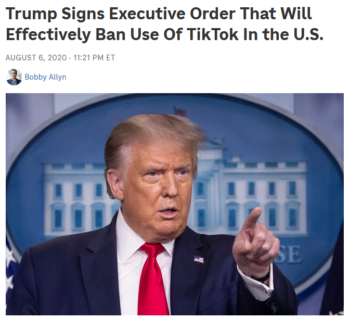






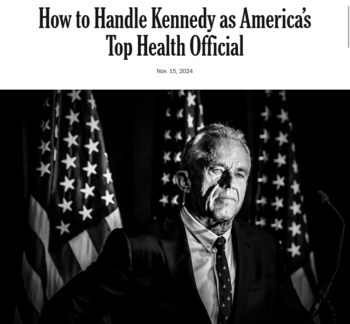



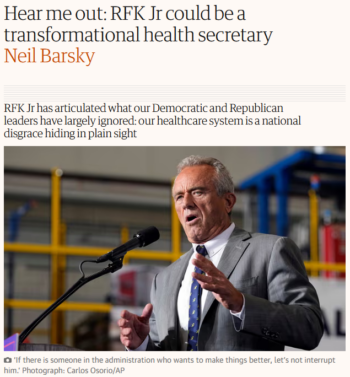






 In the aftermath of the Trump victory, the opinion pages of the New York Times and the Wall Street Journal both published post-election eulogies for conventional economics. Remarkably, these columns shared almost the exact same headline.
In the aftermath of the Trump victory, the opinion pages of the New York Times and the Wall Street Journal both published post-election eulogies for conventional economics. Remarkably, these columns shared almost the exact same headline.













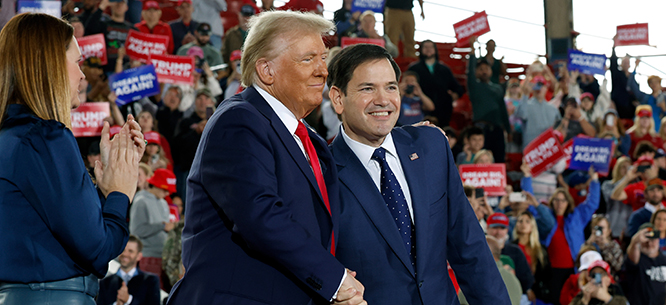

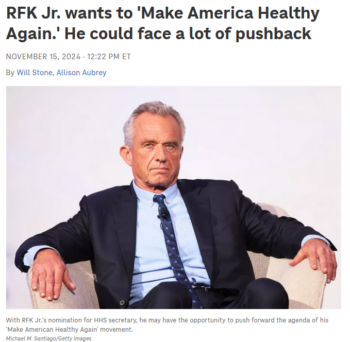
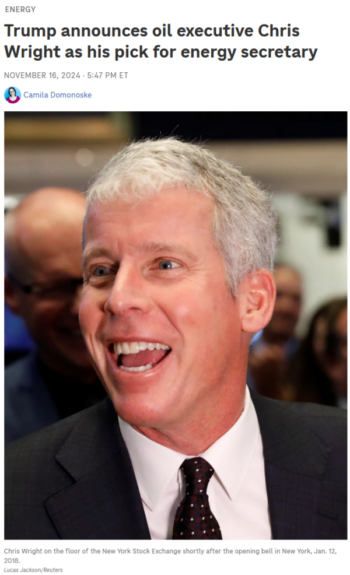
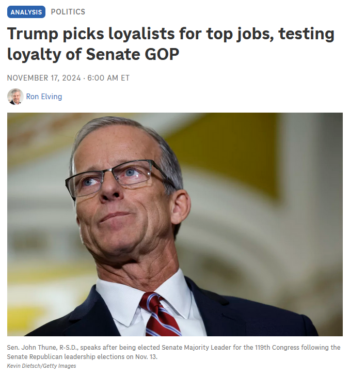
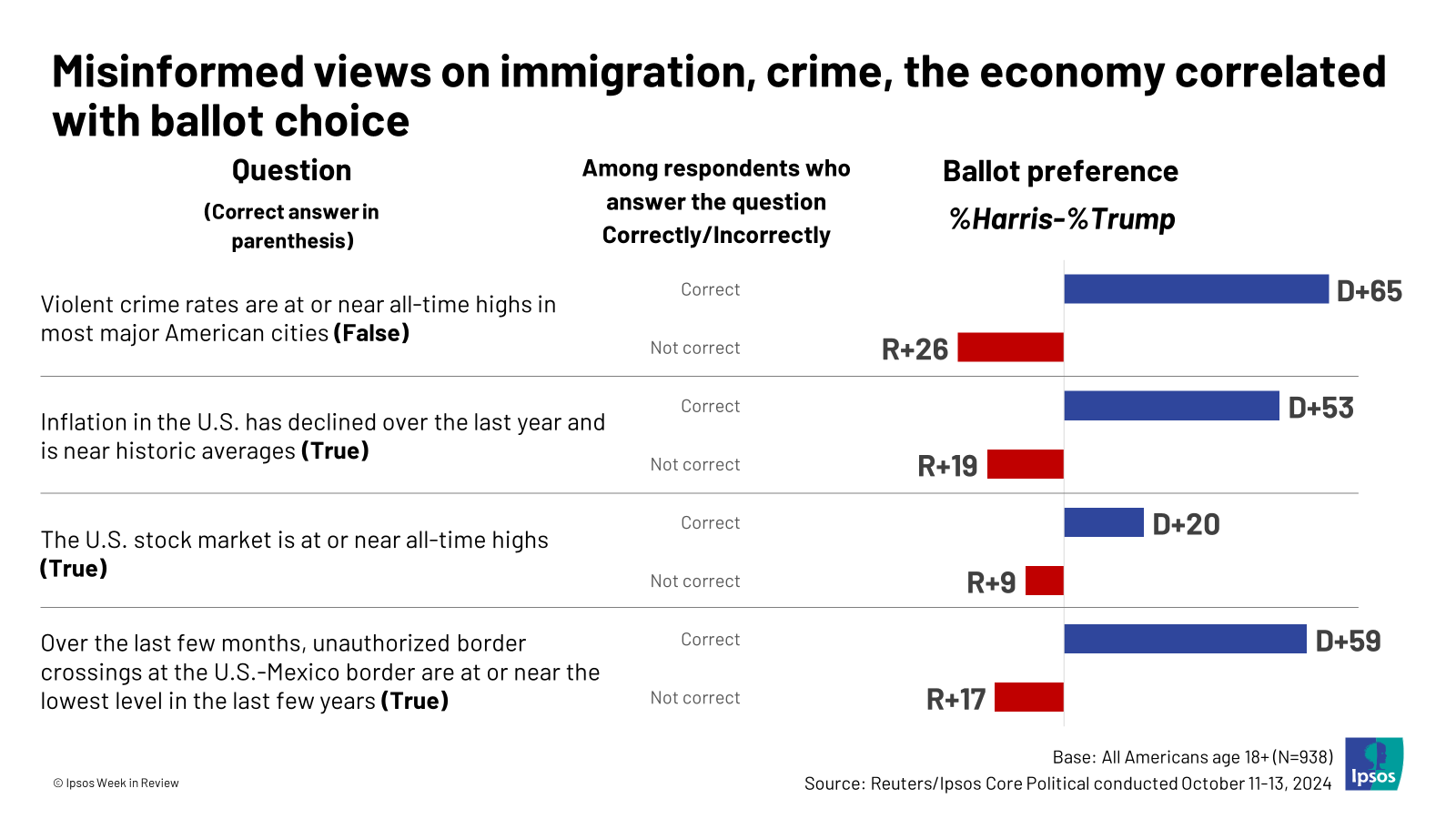
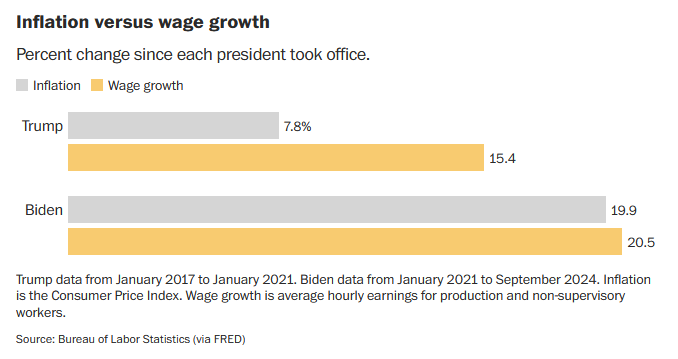
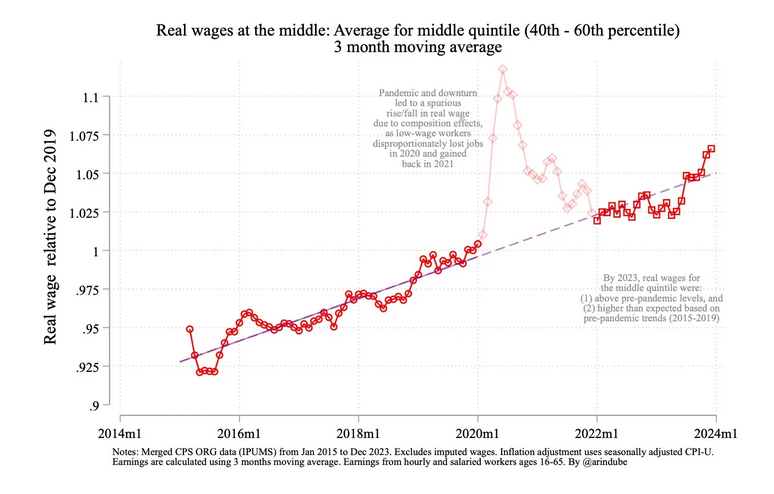
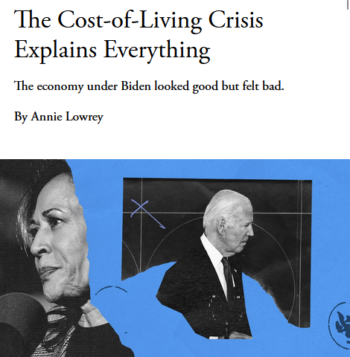
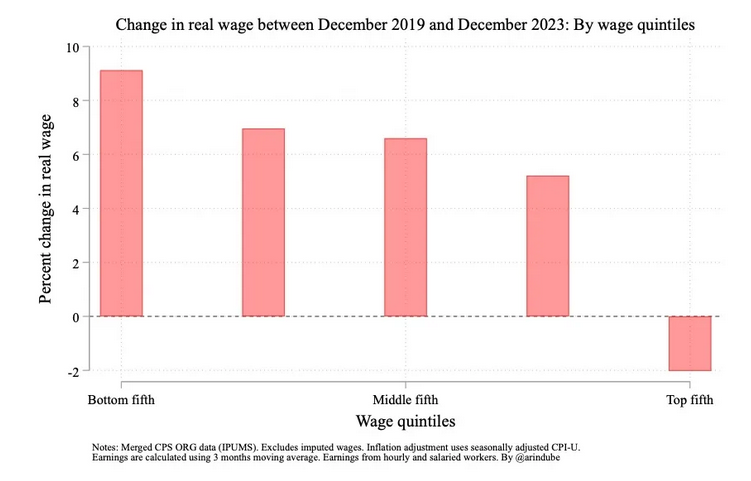


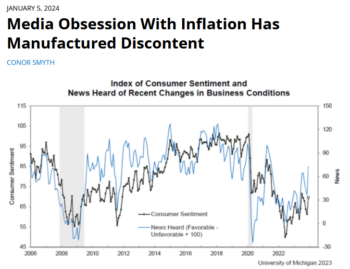



 (@iAnnetnl)
(@iAnnetnl) 